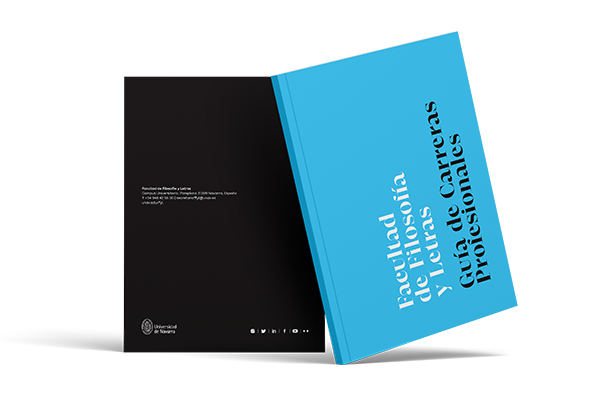Ten reasons to study the Degree in language and Spanish Literature.

Integrated study
And adapted linguistic and literary knowledge.
Active methodologies
To enhance student participation: project-based learning, problem-based learning and cross-curricular learning in academic writing.
Stay
A stay in a room, which complements knowledge language literature and language .
Diploma from specialization
Creative Writing.
International approach
It incorporates subjects in English and promotes mobility and student exchanges.
Integrated practices
At Study program through two curricular subjects.
Own research centres
laboratory del habla/Speech Lab, Instituto de language y Cultura Españolas (ILCE) and Centro de Escritura
Innovative and adapted
To meet the demands of today's labour market, which is looking for a complete, practical and integrated training programme.
Orientation
Orientation and training program in competencies that financial aid to the development of the students' professional degree program
360º University Experience
Students can enjoy a wide range of activities at Campus in Pamplona: sports, volunteer activities, theatre, congresses, exhibitions and concerts, choir and orchestra, Cultural Activities Office...
You will be able to work in...
Graduates in Spanish language Literature combine literary creativity and linguistic skills with professional competencies to teach Spanish, a language growing global relevance, and to apply current technologies in communication and culture. Their training allows training to develop in sectors as diverse as Education, publishing, translation, and new technologies.
The Degree opens the door to numerous specializations, from research teaching creative writing, editing, management , Humanities , applied and computational linguistics, offering students the flexibility to tailor their degree program their interests and professional aspirations.
Where do our alumni work?

Nuria Martinez
Writer, playwright, and producer. assistant to the at ATG Entertainment.
Madrid
Literature and Creative Writing · 2024
Miren Agirregomezkorta
Entrepreneur and specialist in the use of AI for marketing
San Sebastian
Philology Journalism · 2023
Victoria Alvarez Musetti
Creator of Espacio Creativo Pájaros Pintados (Painted Birds Creative Space)
Pamplona
Literature and Creative Writing · 2021
Álvaro Fernández de Mesa
Communications Office of the Presidency of the Regional Government of Galicia
La Coruña
Philology · 2021

